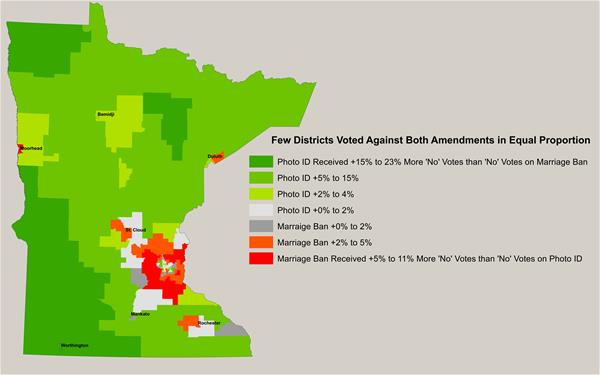As highlighted in MCN’s policy agenda in 2020, we strive to both 1) create a more inclusive and equitable Minnesota by addressing structural racism and economic disparities, and 2) build a strong democracy and encourage civic participation. To those ends, MCN opposes a new voter photo ID bill (SF 3571) that would create a new roadblock to voting participation. MCN’s public policy director, Marie Ellis will submit written testimony opposing the bill before it is heard in the State Government Finance and Policy and Elections Committee on Thursday, February 27, 2020.
How you can be involved
The bill will be heard by the State Government Finance and Policy and Elections Committee on Thursday, February 27, 2020.
Before then, we urge our nonprofit members to contact their state Senator and state Representative asking them to oppose any legislation implementing voter photo ID requirements.
Guidelines:
- Be sure to mention you are a constituent in the district (this means where you LIVE not where you WORK…unless they are the same)
- State your opposition to voter photo ID and list a few reasons why
- Ask your legislators to oppose voter photo ID requirements
- Sign your name and address
You can also call your legislators with the same message, or tweet them using the hashtags #mnleg and #defendingdemocracy.
Additionally, MCN’s nonprofit member, the League of Minnesota Women Voters has an Action Alert Tool with helpful history, context, and language for action.
How this impacts the nonprofit sector
SF 3571 would have a significant impact on people in the communities many nonprofit organizations partner with.
Among MCN’s 2,200 members, those who work with the elderly, victims and survivors of relationship abuse, veterans, students, highly mobile populations and others, would find that their communities would encounter new barriers to voting under this statute because they have limited mobility, are without a permanent address, or are low-income, etc.
While it is popularly assumed to be true, it is not the case that all Minnesotans have a government issued photo identification and those who don’t can attain one with ease even if they are provided by the state at no cost.
The nonprofit sector has long been a champion of civic participation. Whether volunteering for a food shelf, serving on a board of directors, or running for office, we believe that a healthy society provides robust and equal opportunity for civic participation. We know that our organizations, and our state, count on it. Voting is for many the first and most consistent act of civic participation, one which lays the foundation for a lifetime of community engagement. We believe that Minnesota’s nation leading voter turnout supports our robust civic sector, and should be celebrated and expanded rather than restricted.
Background and Context
Imposing a requirement of voter photo ID means that to be eligible to vote an individual would need to have a valid photo ID that lists their current address.
As recently reported in the Star Tribune, “Republicans are renewing a push for a photo ID requirement to vote, nearly eight years after voters rejected a constitutional amendment attempting to do the same thing. The amendment failed in 2012 with roughly 52% of Minnesotans opposed, but in a video posted to Twitter on Friday, Senate Majority Leader Paul Gazelka said he didn't think it was "clear in people's minds what actually we were trying to do" back then.” Read the full story
In 2012, the amendment was part of the “Vote No” campaign that rallied against two proposed amendments: a ban on same-sex marriage and the requirement of a photo ID for voting. As MCN reported in its printed newsletter, Nonprofit News, in early 2013:
“Conversations throughout the state revealed that the two issues were very different for voters, and appealed to different demographics. The Minnesotans United Campaign used conversations about love and commitment as a way to shift long-term thinking on a question that is undergoing a transformation in American society.
The Our Vote Our Future campaign’s messages were practical, addressing issues such as the cost of implementation. Voters in greater Minnesota were critical to the success of Our Vote Our Future, while Minnesotans United for All Families found substantial support in suburban communities, and many Minnesotans voted “yes” on one question and “no” on the other.
The lesson for nonprofit advocacy is clear—Minnesota voters are thoughtful, deliberate decisionmakers who contemplate and decide important policy questions on their own merits.”
As the map below indicates, voters in greater Minnesota were critical to the success of Our Vote Our Future, while Minnesotans United for All Families found substantial support in suburban communities, and many Minnesotans voted “yes” on one question and “no” on the other.
